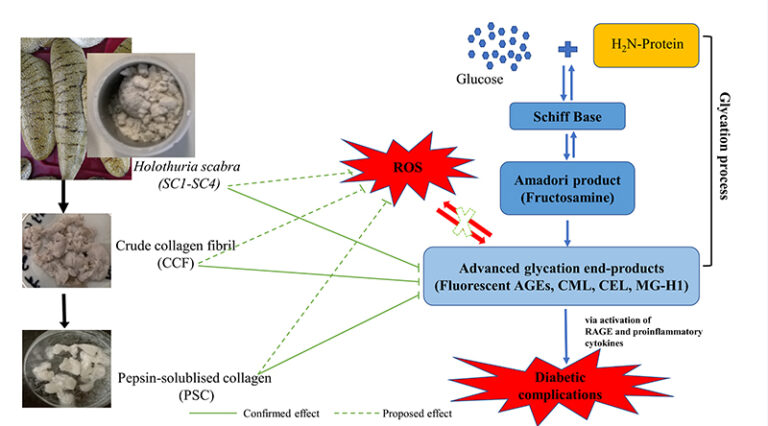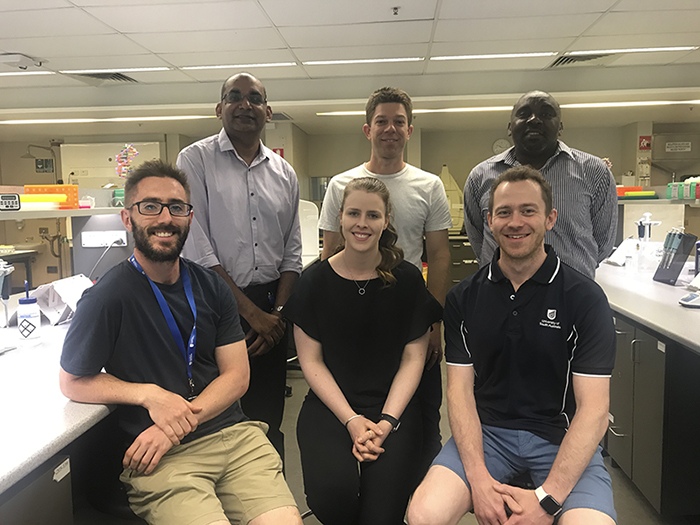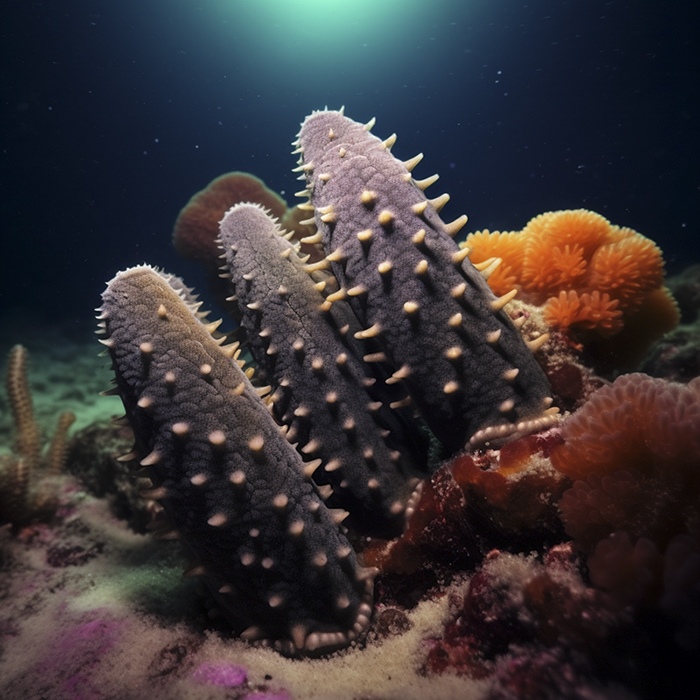
Sea Cucumbers: A Promising Natural Solution for Diabetes Prevention and Management by Dr. Permal Deo
We had the privilege of interviewing Dr. Permal Deo, a distinguished researcher from the University of South Australia, whose recent article published in IFST has unveiled the remarkable potential of sea cucumbers in inhibiting the formation of Advanced Glycation End products (AGEs) linked to an increased risk of diabetes and related complications. Dr. Deo’s novel findings, combined with insights from the scientific community, shed light on the therapeutic properties of sea cucumbers and their role in diabetes prevention and management.

Educational Background and Research Focus:
Dr. Deo’s educational journey encompasses a rich academic background, including a BSc in Biology/Chemistry, an MSc in Toxicology, a PhD in Molecular Biology, and a Graduate Certificate in Tertiary Teaching. Equipped with this comprehensive knowledge, Dr. Deo has dedicated his research to exploring the potential of natural products, with a particular focus on Australian medicinal plants and food plants, as inhibitors of disease biomarkers implicated in diabetes, Alzheimer’s disease, and cancer. His research further extends on DNA damage biomarkers and its association with diseases.
Research Team in this Research Project:
The research project comprises a team led by Dr. Deo, consisting of several members with diverse areas of expertise. One notable member is Ms Hoi Yan Wong, the first author of this article. Ms Wong is an Accredited Practicing Dietitian registered with Dietitians Australia; and holds a Bachelor’s degree in Nutrition and Food Sciences and a Master’s degree in Nutrition and Dietetics.
Unveiling the Inhibitory Effects of Sea Cucumbers on AGE Formation:
The cornerstone of Dr. Deo’s study lies in the inhibitory effects of sea cucumbers on the formation of AGEs, a compound associated with the development of diabetes and its complications. Building upon previous research highlighting the anti-inflammatory and antioxidant properties of sea cucumbers, Dr. Deo and his team investigated the role of sea cucumber extracts and collagens in preventing AGE formation. Their findings revealed that processed dried sea cucumber extracts and collagen significantly inhibit AGEs by reducing sugar-related metabolites in the body, providing a promising avenue for diabetes prevention.
Mechanisms Behind the Sea Cucumber Cure:
In line with the study’s objectives, Dr. Deo and his team measured the antioxidant activities of sea cucumbers and established a significant correlation between AGE inhibition and the total phenolic and antioxidant activities present in these marine creatures. This suggests that the antiglycation potential of sea cucumbers stems from their ability to scavenge free radicals formed during the early and late stages of protein glycation, reinforcing their role in mitigating diabetes risk.

The Implications for Diabetes Prevention and Functional Food Products:
Dr. Deo’s research offers promising implications for individuals with diabetes and the broader population in terms of prevention and management of the disease. The inhibitory effects of sea cucumbers on AGE formation and their array of therapeutic properties, such as anti-angiogenic, anti-inflammatory, antioxidant, and wound healing capabilities, position them as a fascinating subject of research. Moreover, the development of sea cucumber extracts in various forms, such as functional foods, powdered supplements, or capsules, could extend their availability and enable wider utilization in combating diabetes.
Challenges and Future Directions:
While the potential of sea cucumbers as a functional food for diabetes prevention is undeniable, challenges exist in sourcing these marine organisms sustainably without compromising the ecosystem. Dr. Deo emphasizes the importance of cultivating sea cucumbers in coastal regions through community programs, enabling a sustainable supply while benefiting local communities. Furthermore, the identification of specific compounds responsible for the inhibitory effects on AGE formation requires further investigation, warranting more extensive research in different sea cucumber varieties.
Conclusion:
Dr. Permal Deo’s research on sea cucumbers as a potential solution to diabetes illuminates a new pathway for prevention and management of this global health challenge. The inhibitory effects of sea cucumbers on AGE formation, combined with their therapeutic properties, have sparked immense interest in the scientific community. As Dr. Deo continues his exploration of natural products and disease biomarkers, his work holds promise for advancing our understanding of preventive measures and therapeutic interventions for diabetes and related complications.
